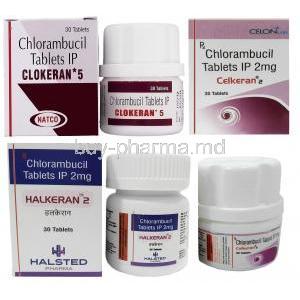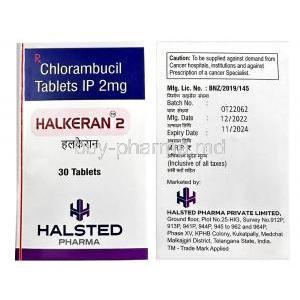Erlotinib
- I. Introduction
- II. Uses of Erlotinib
- III. Off-Label Uses of Erlotinib
- IV. How Erlotinib Works
- V. Composition of Erlotinib
- VI. Dosage and Administration
- VII. Careful Administration
- VIII. Common Side Effects of Erlotinib
- IX. Serious Side Effects and Warnings
- X. Important Precautions
- XI. Contraindications
- XII. Interactions with Other Drugs
- XIII. Administration to Special Populations
- XIV. Overdosage
- XV. Storage and Handling Precautions
I. Introduction
Erlotinib, a medication in the field of cancer treatment, offers hope to individuals dealing with specific types of cancer. Understanding how it works, its potential side effects, and the proper way to administer it can significantly impact the effectiveness of treatment. This drug plays a role in modern medicine, especially in specialized treatments requiring targeted therapy.
II. Uses of Erlotinib
Treatment of Non-Small Cell Lung Cancer (NSCLC)
Erlotinib is a drug that blocks a protein called epidermal growth factor receptor (EGFR), which is involved in the growth and spread of cancer cells. Erlotinib has been approved for the treatment of non-small cell lung cancer (NSCLC), which accounts for about 85% of all lung cancers. However, not all patients with NSCLC respond to erlotinib. Studies have shown that erlotinib is more effective for patients who have specific genetic mutations in the EGFR gene, which makes the protein more active and sensitive to erlotinib. These mutations are more common in patients with lung adenocarcinoma, a subtype of NSCLC, and in patients who are Asian, female, or never-smokers.
References:
- Erlotinib as single agent first line treatment in locally advanced or metastatic activating EGFR mutation-positive lung adenocarcinoma (CEETAC): an open-label, non-randomized, multicenter, phase IV clinical trial
- Erlotinib as Neoadjuvant Therapy in Stage IIIA (N2) EGFR Mutation-Positive Non-Small Cell Lung Cancer: A Prospective Single-Arm Phase II Study
- Variation in targetable genomic alterations in non-small cell lung cancer by genetic ancestry, sex, histology, and smoking
Management of Pancreatic Cancer
Erlotinib is used not only for NSCLC but also for pancreatic cancer, which starts in the pancreas, an organ that produces digestive juices and hormones. Pancreatic cancer is often hard to treat and has a poor prognosis. Erlotinib can be used with another chemotherapy drug called gemcitabine, which kills cancer cells by interfering with their DNA. This combination may improve survival and quality of life for some patients with advanced or metastatic pancreatic cancer, meaning the cancer has spread beyond the pancreas.
References:
Other FDA-Approved Indications
Apart from these, the Food and Drug Administration has granted its approval, for applications, although to a lesser degree.
III. Off-Label Uses of Erlotinib
Medical researchers have shown interest in exploring the potential of Erlotinib for treating various forms of cancer. Ongoing studies and clinical trials are currently underway to assess the effectiveness of this medication, in conditions that extend beyond its approved uses.
IV. How Erlotinib Works
Mechanism of Action
Erlotinib is an Epidermal Growth Factor Receptor (EGFR) inhibitor, targeting its tyrosine kinase activity.
Pharmacokinetics and Pharmacodynamics
To gain insight into how Erlotinib affects the body over time, it is essential to understand its pharmacodynamic properties. This encompasses factors like how it's absorbed, its bioavailability, and the intricate details of its cellular mechanism.
V. Composition of Erlotinib
Active Ingredients
The main active component present in the medication is Erlotinib hydrochloride.
Inactive Ingredients
Other substances that might not be active in the composition are lactose monohydrate, sodium starch glycolate, and microcrystalline cellulose.
Different Formulations
Erlotinib is primarily found in the form of tablets, although it might also be present in preparations intended for research or specialized treatment.
VI. Dosage and Administration
Recommended Dosage for Different Conditions
For small cell lung cancer (NSCLC) the recommended dosage is 150 mg per day taken orally. When it comes to cancer, the suggested dosage is 100 mg per day taken orally in combination, with gemcitabine.

Timing and Method of Administration
While oral tablets are commonly used, there may be situations where alternative routes, like intravenous injections, are employed.
VII. Careful Administration
Patients with Hepatic or Renal Impairments
Patients with liver or kidney function require careful monitoring and adjustments to their medication doses.
Consideration for Blood-Brain Barrier Penetration
Caution is necessary when it comes to the ability of the drug to cross the blood-brain barrier for patients with metastases in their central nervous system.
VIII. Common Side Effects of Erlotinib
Gastrointestinal Issues
Nausea is an encountered but controllable side effect. Diarrhea should be monitored carefully as it could lead to dehydration.
Skin Reactions
The medication frequently causes skin reactions, with the common ones being; Rash; It often shows up in the initial weeks of treatment. Dry skin: Regularly applying moisturizer can help improve this condition.
IX. Serious Side Effects and Warnings
Pulmonary Effects
Although Erlotinib plays a role in the field of oncology, it is not, without its pulmonary severe effects. One of the concerning consequences is the development of Interstitial Lung Disease (ILD) which involves the gradual scarring of lung tissue.
Interstitial Lung Disease
In some cases, this situation can result in difficulty in breathing, which requires urgent medical attention. Based on the data, it appears that ILD is a harmful complication.
Cardiovascular Effects
The world of consequences involves many issues, with heart failure being the most prominent concern.
Heart Failure
In some cases, using Erlotinib therapy has been associated with worsening pre-existing heart conditions and, in some instances, the development of congestive heart failure.
Hepatic Toxicity
The potential impact of the drug on the liver should not be ignored. There have been cases where abnormalities in liver function and even acute liver failure have been observed.
X. Important Precautions
Risk Mitigation for Serious Side Effects
Regular checkups, for heart health and occasional assessments of lung function.
Regular Monitoring and Lab Tests
It is important to conduct blood tests to keep track of the liver's performance and other essential health indicators.
XI. Contraindications
Absolute Contraindications
People who have a documented sensitivity to Erlotinib or any of its ingredients should avoid using this medication.
Relative Contraindications
People with kidney or liver problems, may not be able to take Erlotinib, so they might need to consider different treatment options.
XII. Interactions with Other Drugs
Drug-Drug Interactions
Due to their pharmacological interaction, it is essential to evaluate the potential effects of combining erlotinib with antacids and blood thinners.

Antacids
The simultaneous use of substances can change the pH levels, which may impact the effectiveness of Erlotinib.
Blood Thinners
The risk of experiencing bleeding increases when Erlotinib is used with anticoagulant medications.
Food Interactions
It is generally recommended to avoid consuming grapefruit and its juice as it can potentially interfere with the metabolism of medications.
Alcohol Interaction
During Erlotinib treatment, it is advisable to abstain from consuming alcohol as it can worsen liver damage.
XIII. Administration to Special Populations
Administration to Elderly Patients
Elderly individuals may require adjustments, to their medication dosages, especially if they have medical conditions at the same time.
Administration to Pregnant Women and Nursing Mothers
The medication is categorized as FDA Pregnancy Category D, which suggests that it may pose risks to the fetus.
Administration to Children
The dosage for children, needs to be calculated with attention, usually considering their body surface area.
XIV. Overdosage
Symptoms and Consequences of Overdose
Severe gastrointestinal discomfort and respiratory difficulties can be indicators of an overdose.
Immediate Steps and Antidotes
The primary approach to managing the condition is to focus on treating the symptoms while closely monitoring the situation.
XV. Storage and Handling Precautions
Recommended Storage Conditions
Keep the item dry, away from any moisture or direct sunlight.
Shelf Life
Check the packaging for information about how the drug remains effective.
Disposal Methods for Expired or Unused Medication
It is essential to dispose of any expired medication in accordance with the environmental regulations specific, to your local area.























